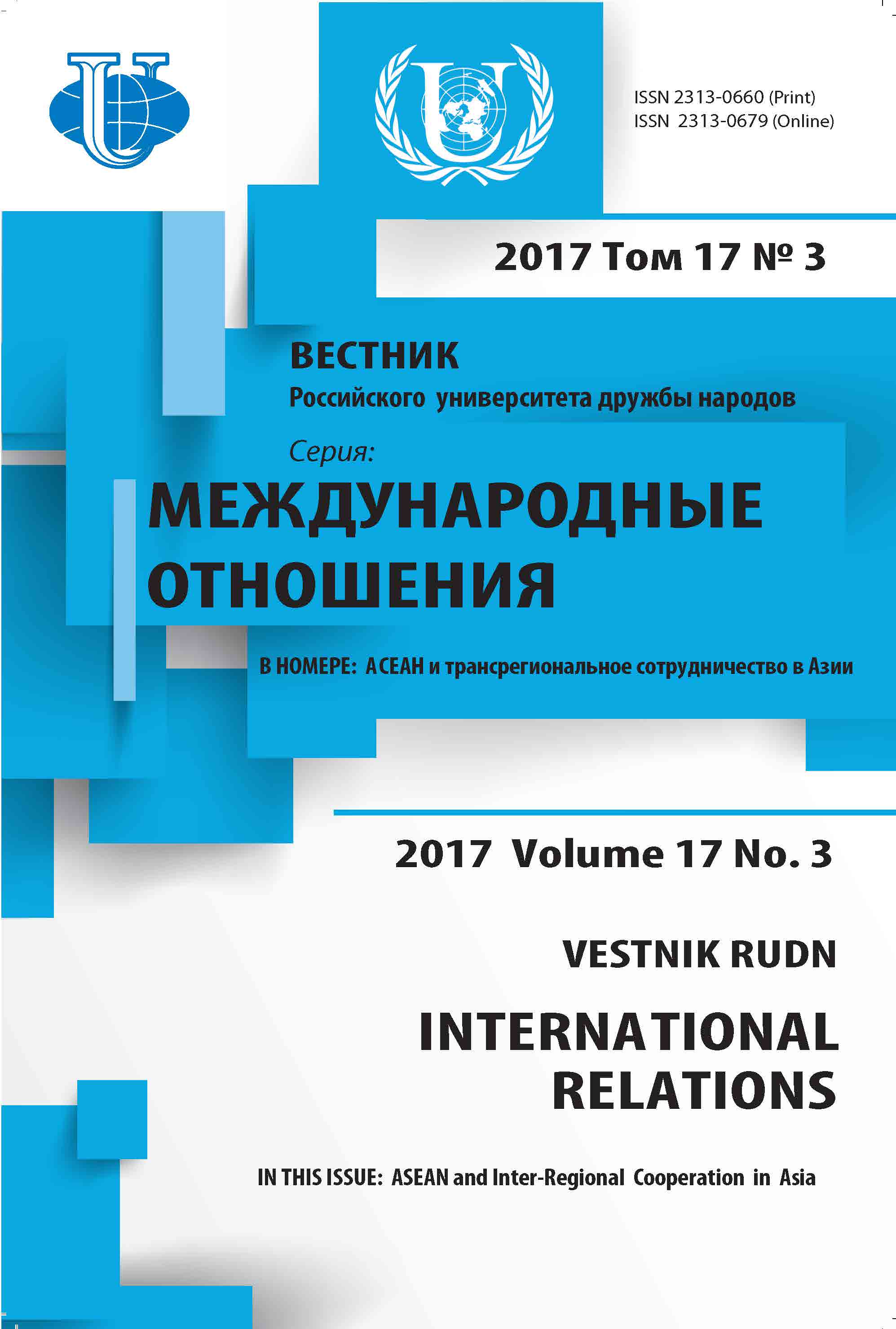RODRIGO DUTERTE - WHO IS HE?
- Authors: Panarina DS1
-
Affiliations:
- Institute of Oriental Studies of RAS, Moscow, Russia
- Issue: Vol 17, No 3 (2017): ASEAN and Inter-Regional Cooperation in Asia
- Pages: 588-597
- Section: POLITICAL PORTRAITS
- URL: https://journals.rudn.ru/international-relations/article/view/16770
- DOI: https://doi.org/10.22363/2313-0660-2017-17-3-588-597
Cite item
Full Text
Abstract
This paper touches upon one of the most odious political figures of modern world - Philippine president Rodrigo Roa Duterte who has been at his post for a year so far. The author aims to take a closer look into his personal and political qualities, figure out in which manner they influence and determine his decision-making process. The article analyses the most significant steps taken by Duterte in his presiden-tial career in order to predict further development of his international and domestic policies alongside with the possible changes in the political layout in the Philippines. Using mostly theoretical methods of analyses and induction the author makes a number of conclusions stating that despite the image of a straight-forwarded brute, Rodrigo Duterte is a much more complex politi-cian, who uses such an image for his own purposes. Being a cunning and wise leader, he knows the bounda-ries that are not to be crossed - this way even his unprecedented behaviour does not undermine his at-tempts to maintain balance among the most influential nations in the world. Massive critique from the outside world does not seem to matter to Duterte since in his politics he firstly relies on the support of his own people, who despite his unconventional methods see him not as a dictator, but as a rather unusual reformist ready to introduce in the Philippines some changes instead of maintaining status-quo. Such policy and determination adds to Duterte’s popularity among his people on the background of the former presidents’ indecisive political moves.
About the authors
D S Panarina
Institute of Oriental Studies of RAS, Moscow, Russia
Email: daria2002panarina@gmail.com
PhD in Cultural Studies, Research Fellow at the Centre of South-East Asia, Australia and Oceania of Institute of Oriental Studies of RAS
References
- Batalla, E.V.C. (2016). Divided Politics and Economic Growth in the Philippines. Journal of Current Southeast Asian Affairs, 35 (3), 161-186.
- Castro, de R.C. (2016). The Duterte Administration’s Foreign Policy: Unravelling the Aquino Admini¬stration’s Balancing Agenda on an Emergent China. Journal of Current Southeast Asian Affairs, 35 (3), 139-159.
- Curato, N. (2016). Politics of Anxiety, Politics of Hope: Penal Populism and Duterte’s Rise to Power. Journal of Current Southeast Asian Affairs, 35 (3), 91-109.
- CY 2015 Annual Regional Economic Situationer / NEDA. Region XI - Davao Region. Reports. (2015). URL: http://nro11.neda.gov.ph/reports (accessed: 08.06.2017).
- Holmes, R.D. (2016). The Dark Side of Electoralism: Opinion Polls and Voting in the Philippine Presidential Election 2016. Journal of Current Southeast Asian Affairs, 35 (3), 15-38.
- Nationwide Survey on the Trust Ratings of the Top 3 Philippine Government Officials and Filipinos’ Expectations of the New Administration. Pulse Asia Research Inc. (2016). URL: http://www.pulseasia.ph/july-2016-nationwide-survey-on-the-trust-ratings-of-the-top-3-philippine-government-officials-and-filipinos-expectations-of-the-new-administration (accessed: 08.06.2017).
- Reyes, D.A. (2016). The Spectacle of Violence in Duterte’s “War on Drugs”. Journal of Current Southeast Asian Affairs, 35 (3), 111-137.
- Teehankee, J.C. (2016). Duterte’s Resurgent Nationalism in the Philippines: A Discursive Institu¬tionalist Analysis. Journal of Current Southeast Asian Affairs, 35 (3), 69-89.
- Thompson, M.R. (2016a). Introduction. The Early Duterte Presidency in the Philippines. Journal of Current Southeast Asian Affairs, 35 (3), 3-14.
- Thompson, M.R. (2016b). Bloodied Democracy: Duterte and the Death of Liberal Reformism in the Philippines. Journal of Current Southeast Asian Affairs, 35 (3), 39-68.











